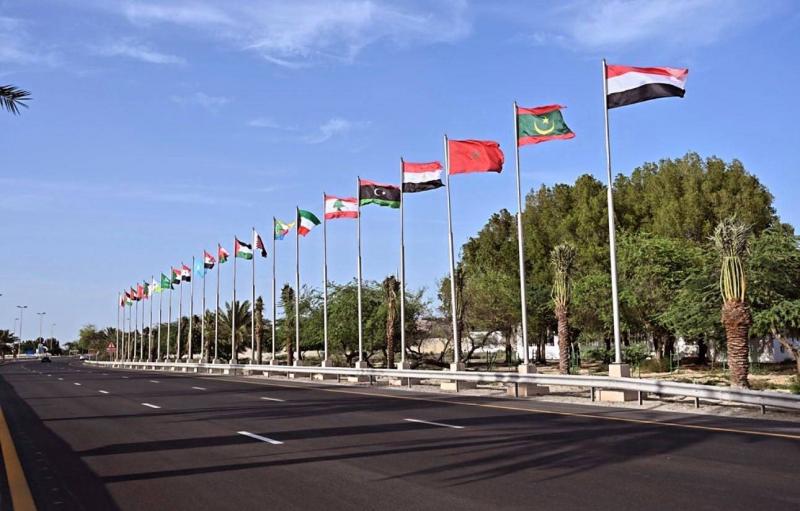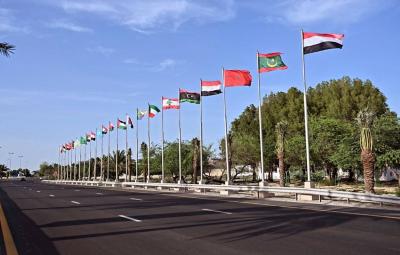Today, Tuesday, in the Bahraini capital Manama, the meeting of Arab foreign ministers commenced in preparation for the 33rd Arab Summit, "The Bahrain Summit," scheduled to be held next Thursday with the presence of Arab leaders and heads of state. The foreign ministers are discussing items on the agenda and a draft agenda to be presented to Arab leaders for discussion and approval during the summit, with the Palestinian issue and the Arab-Israeli conflict being the top priorities.
Saudi Foreign Minister Faisal bin Farhan stated that "the continuation of the Israeli war has demonstrated the ineffectiveness of international institutions," emphasizing that "ongoing warfare without concern has weakened the credibility of the international system."
The discussions will cover the political developments regarding the Palestinian issue and the Arab-Israeli conflict, activating the Arab Peace Initiative, the recent developments and violations in occupied Jerusalem, monitoring settlement activities and the wall, the uprising, prisoners, refugees, as well as supporting UNRWA, development in Palestinian territories, supporting Palestine’s budget, and the resilience of the Palestinian people, as well as discussing the situation in the occupied Syrian Golan.
The agenda includes a section titled "Arab Affairs and National Security," comprising 13 items: solidarity with Lebanon, developments in the Kingdom of Saudi Arabia, support for peace and development in the Republic of Sudan, developments in Libya, developments in the Republic of Yemen, support for the Federal Republic of Somalia, and support for the Comoros Islands.
It also includes a peaceful resolution to the Djiboutian-Eritrean border dispute, Iran's occupation of three Arab islands—Greater Tunb, Lesser Tunb, and Abu Musa belonging to the United Arab Emirates in the Arabian Gulf—Iranian interventions in the internal affairs of Arab states, and taking a unified Arab stance on Turkish violations of Iraqi sovereignty and interventions in the internal affairs of Arab states, as well as the Ethiopian dam.
The council will also discuss international political affairs, including the second Arab-Chinese summit, the establishment of a partnership forum between the Arab League and the Association of Southeast Asian Nations (ASEAN), and supporting the nominations of Dr. Khaled Al-Anani for the position of Director-General of UNESCO from Egypt and Mahmoud Ali Youssef for the position of Chairperson of the African Union Commission from Djibouti.
The council will also delve into economic, social, media, and legal affairs, addressing several topics, including following up on Arab interactions with global climate change issues, the revised Arab strategy for human rights, a common Arab media strategy to combat terrorism, ensuring Arab national security, combating terrorism, and developing the Arab framework for counter-terrorism.
**Proceedings and Arrangements for the Summit**
Preparatory meetings for the regular 33rd Arab Summit hosted by Bahrain began on Saturday, 16th of this month. Senior officials of the Economic and Social Council convened under the leadership of Yusuf Al-Hamoud, Bahrain's Undersecretary for Financial and National Economy Affairs, succeeding his Saudi counterpart, Naif Al-Anzi.
The Arab League published on its website the schedule for the preparatory meetings, which will last four days, from Saturday to Tuesday, and will include six meetings for senior officials from Arab countries. Delegations from the Arab League arrived in Manama last Thursday to finalize arrangements for "The Bahrain Summit."
On Tuesday, May 14, the Arab League indicated that two important meetings were scheduled: a meeting of the Follow-up Committee for the Implementation of Resolutions and Commitments at the ministerial level, and the preparatory meeting of foreign ministers of the Arab League at the summit level, which is the final preparatory meeting.
The 33rd summit gains international momentum amid the security conditions and challenges facing the region, highlighting the necessity to reach constructive decisions that contribute to enhancing Arab solidarity and support efforts towards achieving peace, security, and stability in the region.
**Significance of Hosting the Summit in Bahrain**
The Kingdom of Bahrain's hosting of the 33rd Arab Summit is of great importance and a notable political event with significant implications both geographically and temporally. It will be the first time Bahrain hosts an Arab summit, lending this session additional significance in affirming the vital role played by Bahrain's longstanding and credible diplomacy in strengthening and expanding Arab-Arab relations.
**Perspectives of Bahraini Officials**
The official spokesperson for the Bahraini National Communication Center, Mohammed Al-Abassi, stated today, Tuesday, to "Sky News" that he hopes the summit arrangements proceed smoothly, expressing: "We hope the outcomes of this summit reflect the aspirations of the Arab people to resolve all conflicts and disputes in the region peacefully and politically, which is what Bahrain and the Arab countries strive for."
Meanwhile, Sheikh Abdullah bin Ahmad Al Khalifa, Undersecretary for Political Affairs at the Bahraini Ministry of Foreign Affairs, previously noted that the 33rd Arab Summit convenes at a critical and challenging time. He mentioned during a meeting of permanent delegates at the Arab League in preparation for the summit that it comes "at a critical juncture, considering the challenges facing the Arab world," with the Israeli aggression against Gaza being a prominent concern, along with the dire humanitarian situation in the Strip and the suffering of innocent civilians from violence, hunger, and blockade, and the destruction of infrastructure amid international double standards.
He noted that "the Palestinian issue remains the core dispute in the Middle East and the primary central issue," and expressed the desire for an immediate ceasefire in Gaza and the fulfillment of the legitimate rights of the Palestinian people to establish their independent state in accordance with the Arab Initiative and the two-state solution.
In this context, he welcomed the UN General Assembly's decision regarding Palestine's right to full membership in the UN. He added that "our acknowledgment that just and comprehensive peace is our strategic choice stems from a realistic vision aimed at preserving Arab national security and ensuring stability and prosperity for all."
He emphasized that "The Bahrain Summit is a message of peace and solidarity, a beacon of hope and optimism for the Arab peoples," explaining that "The Bahrain Summit represents an opportune moment to open new pathways for Arab integration, linking peace and development, founded on awareness and knowledge, and elevating towards building partnerships."




